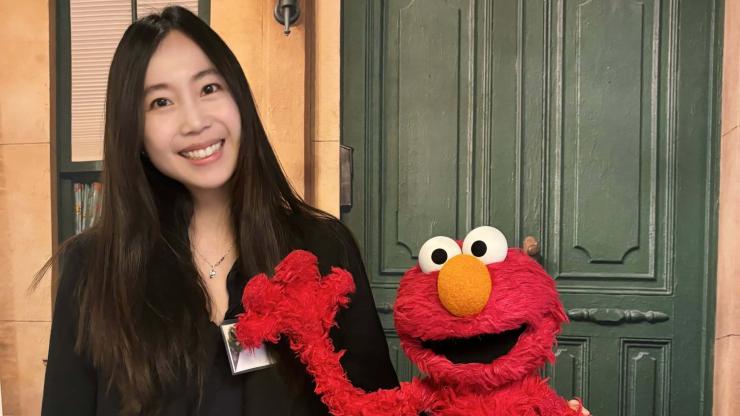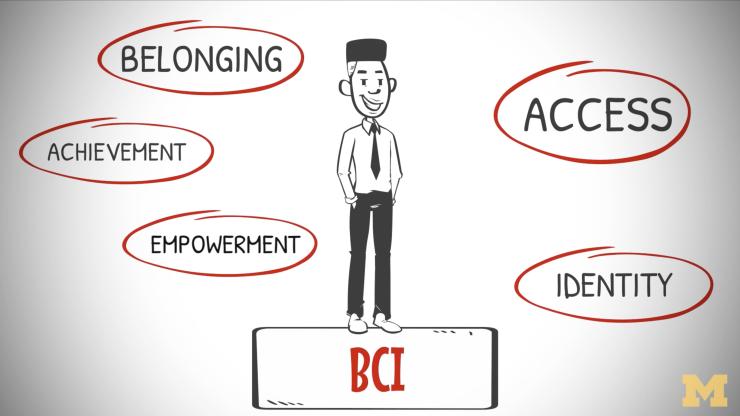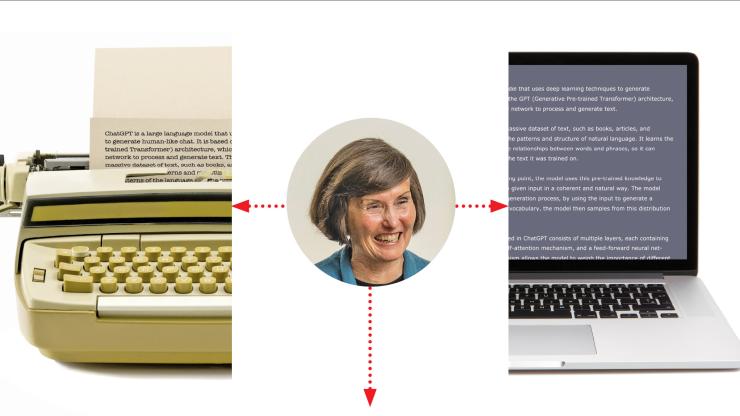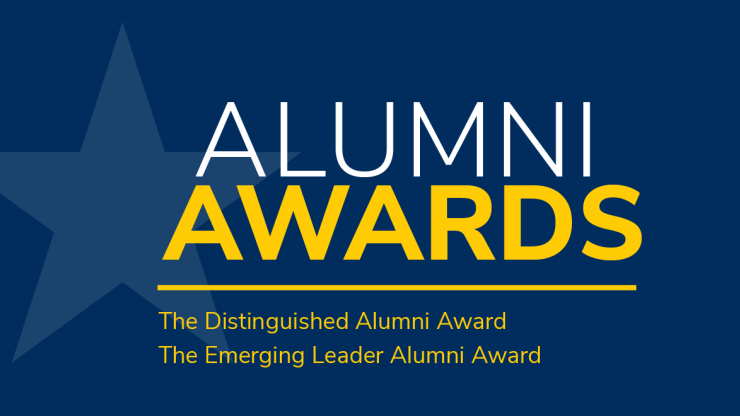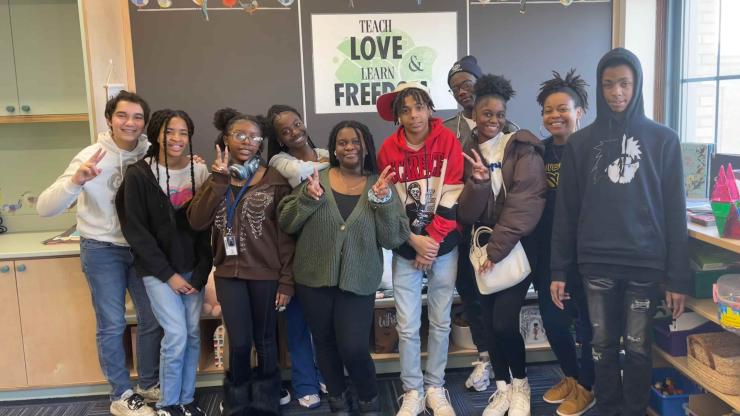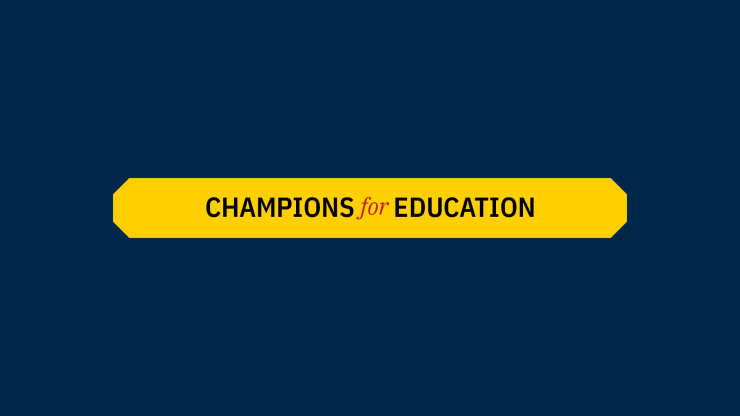Teach Blue Fellows
Marsal School alumni make visible the work of expert educators while continuing to grow as lifelong learners of their own craft
You don’t need to search Google News to read negative reports about U.S. education. They will find you. While there are indeed a number of deep-seated problems in our school system—many of which have intensified since COVID-19—the Marsal School community sees countless K-12 narratives that are cause for optimism.
We want to tell these stories.
Teach Blue Fellows is an exciting new program and part of the school’s Teach Blue initiative, one of the Marsal School’s approaches to addressing the challenges of recruiting, preparing, retaining, and recognizing teachers by providing a comprehensive pipeline of opportunities and resources.
This March, the first cohort of seven alumni returned to the halls of 610 East University Avenue to take on a new challenge as Teach Blue Fellows. They are working alongside their peers and Marsal School faculty members to address authentic problems of practice in their work. Over the course of three semesters, the fellows—all K-12 educators—will define a problem of practice, learn more about the surrounding issues, craft a solution to be implemented in the fall of 2024, and then report out findings at the Teach Blue Fellows Symposium in spring 2025.
Part of the fellows’ role is to pull back the curtain and show the public what the hard work of teaching and learning looks like—including constant reflection on the part of educators. During their three-semester inquiries, fellows will be broadcasting their work to a wide audience including parents and members of their communities. These accounts will be available for all to read about on the Marsal School website, through social media posts, and in future issues of Michigan Education.
At about the same time the first cohort of fellows reports their findings at the spring symposium, it will be time to introduce the next cohort. As long as the war to define K-12 education continues, the Marsal School will be sharing authentic stories of the dedication, skill, curiosity, and innovation of educators.
Meet the Fellows
Maria DeRosia
On how her work at the Marsal School of Education impacted her work as an educator: “One thing I learned at the School that impacted my work as an educator was the importance of collegiality. During my student teaching experience, I remember meeting with my small group of fellow classmates in our cohort groups, talking about the ups and downs of our experiences. Discussing those common positive moments as well as the difficulties made me realize the importance of collaborating with fellow staff in a grade level/building in order to be a successful teacher.”
Abigail Esbrook
On one key to learning that involves instructional planning: “Striving to improve your curriculum reminds you that you are a learner as well. As a history teacher, I cannot expect my students to ‘do’ history if I am not actively doing it as well. Actively pursuing my field outside of the classroom helps me gain new perspectives on content and delivery. Being aware of current issues regarding historical trends and incorporating it into my lessons ensures that students see the connections between the past and the present, thus making classroom work authentic and relevant.”
Dara Klein
On what she wishes the public understood about teaching and learning: “The public narrative about schools is so often focused on deficit; while there are certainly systemic changes needed to address inequities in education, I wish the news cycle featured more asset-based thinking about children, teaching and learning, and public education.”
Shannon Pypa
On how her work at the Marsal School impacted her work as an educator: “I think my literacy course probably had the most significant impact on me as an educator. I remember having to write an extensive reflection about my own history of literacy, and it forced me to consider how my experiences are so different from those of others. This encouragement to be aware of my own assumptions and to be cognizant of the unique literacies of each of my students continues to be a fundamental aspect of how I approach my work.”
Ravi Smith
On what he wishes the public understood about teaching and learning: “Optimal learning doesn't require a lot of direct instruction. Students are largely able to learn by engaging in work with each other. Guide on the side > Sage on the stage.”
Jennifer Tianen
On something our current interns should know about education: “Teachers should not be afraid to not know the answer or to have a lesson plan fail—and let the kids see and hear how you are growing from that experience. One of our shared class expectations is… ‘All of us are students, and all of us are teachers—each one of us has something valuable to offer the class.’ It is so important to remember how much we can learn from the students in front of us.”
Luke Wilcox
On one key to learning that involves classroom culture: “A student's sense of belonging in my classroom is one of the most important factors that leads to success. This is especially true in a math classroom, where students often feel like they aren't capable of high-level work. It is part of my job to build a classroom culture where every student believes that they can participate and contribute.”








